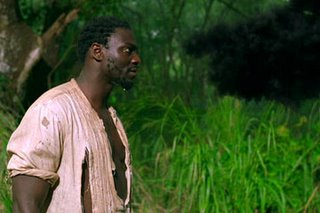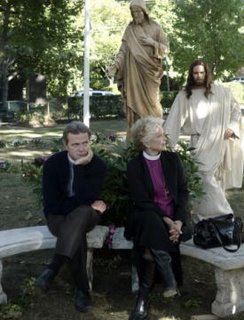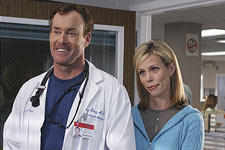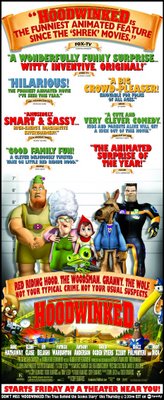
(Warning: this posting contains plot spoilers for the LOST episode, “The 23rd Psalm.”)
As you can see by earlier posts, I’m a guy curious about how faith (particularly Christian faith) intersects with culture. Which of course makes me intrigued by the notion that most of the well done movies and television shows that deal directly with questions of faith/Christianity tend to be made by non-Christians – or at least folks that aren’t trumpeting their religious background while marketing said project.
I think there is a boatload of reasons (and a large boat at that -- is the correct term “ship?”) why this is so; one that has drawn my attention recently is that it seems that many Christian look to art/entertainment as a way to explain/expound on faith, as opposed to using it as a way to explore faith. And, as any child knows, going exploring is so much more interesting than sitting in class listening to a lecture.
Case in point, LOST. Highly popular show, highly fascinating, highly regarded by critics and audience alike. And one of the best places to watch faith being wrestled with – specifically the merits of faith versus reason. Why is it so fascinating? I think because they set out to ask questions.
This year the show is being shaped by co-creator Damon Lindelof and his colleague, Carlton Cuse (while J.J. Abrams is off doing
See? Set out to explore questions, you come up with an interesting ride. Another thing I appreciate about the way LOST handles its safari into faith: the journey isn’t simply about faith versus reason; distinctions are made on what the faith or reason is based on. Boone’s faith was in Locke; look where that got him. Jack’s reason was in his own power – last week’s episode showed us how well that went.
Case in point, LOST “The 23rd Psalm,” which aired two weeks ago. The episode is a dramatically compelling look at a man’s journey from being truly lost to truly found – all through the power of Christ’s forgiveness. In a scene near the end, Eko is confronted by “the monster,” a dark cloud of flashing images. Everyone who faces the cloud (with the exception of Locke) runs in fear; Eko stands, calmly staring into the darkness. When asked why he didn’t run, he calmly explains that the cloud held no fear for him.
Fan sites claim the cloud contains pictures from of the past of the character facing the cloud – available to the television viewer with a quick eye and a Tivo. One site reports that the images shown to Eko were of his worst crimes, including the death of his brother, and a final image of Jesus on the cross. None too subtle message: because of the sacrifice of Christ, Eko’s past sins no longer hold power over him. Yowza.
Hey, in case you are thinking I’m reading too much into this, Eko recites the entire 23rd Psalm at the end of the show – “The Lord is my shepherd… Yea, though I walk through the valley of the shadow of Death, I will fear no evil…”
This just struck me: how come so many of us are afraid to go through the valley of questions and doubts? Is it because we doubt the Shepherd?
Thank you Mssr. Lindelof and Cuse for daring to walk through the valley.
Just my thoughts,
Sean



